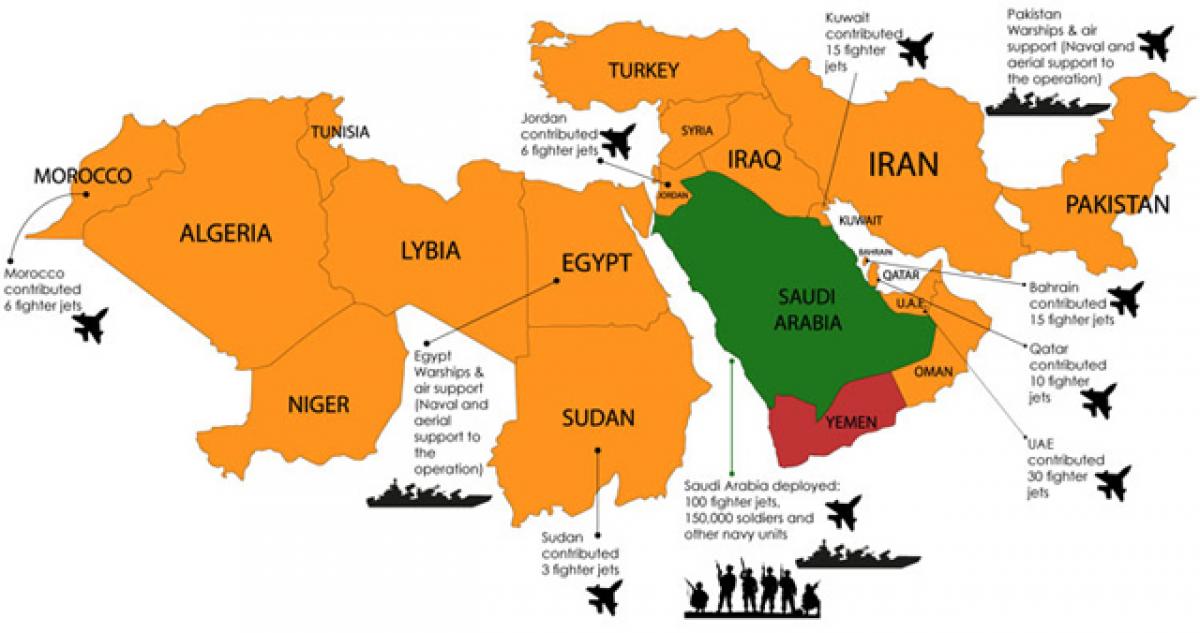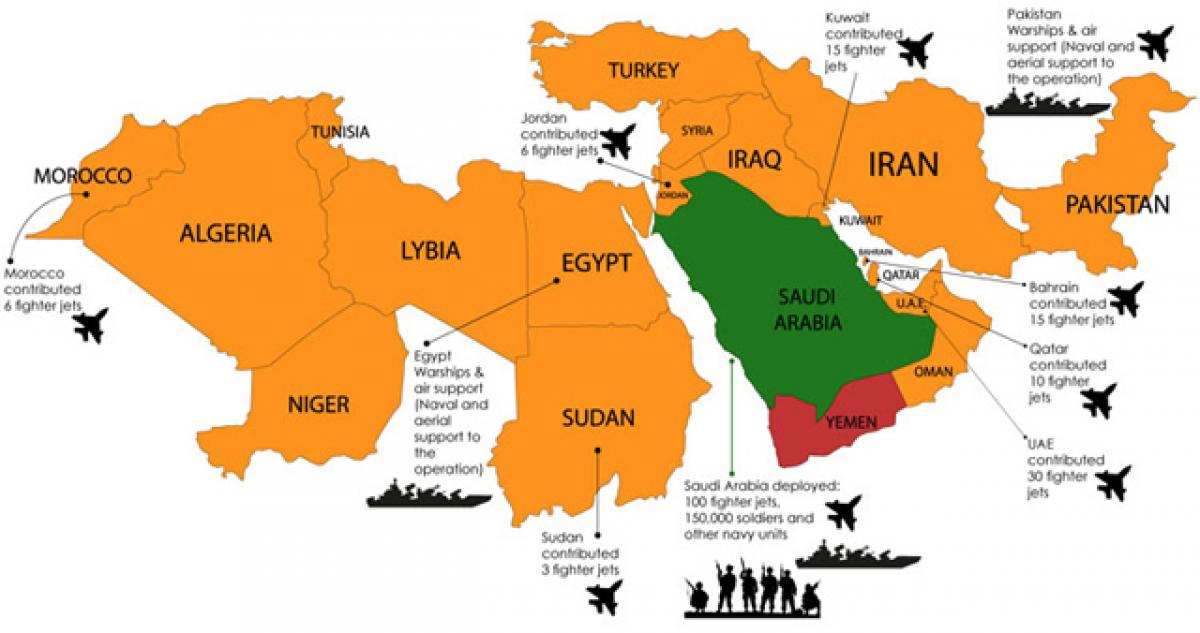Live
- BJP MP candidate Bharat Prasad visited the student who tried to commit suicide
- PM’s popularity in the fast lane: Autos with 'Har Dil Mein Modi' slogan spotted across Delhi
- Delhi-based political parties are like East India Company: Sukhbir Badal
- Golf: Diksha moves into Top-20 at South African Women’s Open
- KCR lashes out against BJP and Congress for destroying Telangana
- Dairy Science students visited the Milk cooling plant
- Moody feels Pant ahead in keepers’ race for T20 WC squad; Srikkanth picks Rahul over Samson as reserve keeper
- Thanking voters for extending 'unparalleled support' to NDA, PM Modi says second phase 'too good'
- Natural Relief for Menstrual Cramps: Beetroot Juice Recipe
- Asha Worker died in a road accident
Just In

How the Saudis are giving Yemen to Iran. From the moment Houthi rebels swarmed through the Yemeni capital of Sanaa, the neighboring nation of Saudi Arabia called the coup an Iranian power grab. Saudi suspicions were well-founded.
From the moment Houthi rebels swarmed through the Yemeni capital of Sanaa, the neighboring nation of Saudi Arabia called the coup an Iranian power grab. Saudi suspicions were well-founded. The Houthis’ Shiite beliefs and desire for greater influence in the nation mesh perfectly with Iran’s broader ambitions for the Middle East. The situation is similar to Lebanon where Iran props up Hezbollah—a Shiite terrorist proxy in a country where the prime minister and some larger parliamentary groups are Sunni.

But the moment the Saudis announced they were to intercede with airstrikes in an attempt to thwart the apparent power grab, Saudi Arabia appears to have initiated a self-fulfilling prophecy. Before the Houthi takeover, Iran was intricately involved in laying the groundwork for the coup. It armed and trained Houthi soldiers. It sent some to Lebanon for pilot training, even though the group did not have decent aircraft until very recently.
Iran supplied teachers to the Houthi schools, ensuring the transition from a youth movement in 1992 to the radical rebel group we see today. It also supplied financing and even medical treatment. Iran has been investing so heavily in the Middle East’s most impoverished nation for a reason. It has been plotting to overthrow and eventually control Yemen for years. It had the overthrow, but it still didn’t have the country.
The Shiites pushed hard south toward the port city of Aden, but there was still a long fight ahead. Up against the Houthis were, and still are, a number of secessionists, government loyalists, Sunni tribes and factions such as the deadly al Qaeda in the Arabian Peninsula. The Yemeni populace was given the opportunity to choose a side. The Houthis would undoubtedly have a far greater struggle on their hands if the population turned against them.
But in a stroke of good fortune to the Houthis and Iran, the Saudis attacked. Saudi Arabia launched an airstrike campaign against the rebels, targeting military outposts and facilities. The air raids have since expanded to targeting the homes of key members. The devastation has been significant, particularly in the Sanaa and Saada governorates. And as the Houthis claim more territory, Saudi airstrikes similarly expand—affecting more of the population.
Yet these very attacks are leading to a total Iranian victory in Yemen. Saudi Arabia’s strategy is turning the populace against the supposed liberators! First, the airstrikes are not enough. Taking a leaf from the American playbook, the Saudis thought that airstrikes would sufficiently weaken the Houthis and help supporters of the former government push them back. But if anything, the Houthis have since expanded their operations.
They have been slowed, but are not withdrawing to previous boundaries. In fact, the Houthis have been launching almost daily attacks into southern Saudi Arabia itself… the longer Saudi Arabia keeps up its airstrikes, the more likely it will completely lose the backing of the populace…And with each day, more homes, power facilities, banks, hospitals and government buildings are destroyed—mostly by the Saudi airstrikes.
Fear, hunger, illness and violence are taking a heavy toll on the civilians caught in the middle of the power struggle. And more and more often, it is turning the people against the Saudis. Iran’s image, however, is growing. With one hand, Iran portrays itself as a helper that wants to send aid to the people but is blocked by suspicious international forces.
With the other hand, Iran strengthens the Houthis’ position to ensure that the Iranian proxy seizes as much of Yemen as possible. But both hands are tightening Iran’s grip on the nation. Iran has been planning this takeover for years—playing the long game and waiting for the right moment. The Saudis have just given it to them.

© 2024 Hyderabad Media House Limited/The Hans India. All rights reserved. Powered by hocalwire.com







